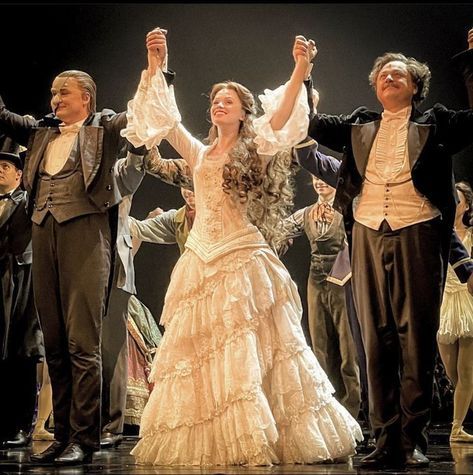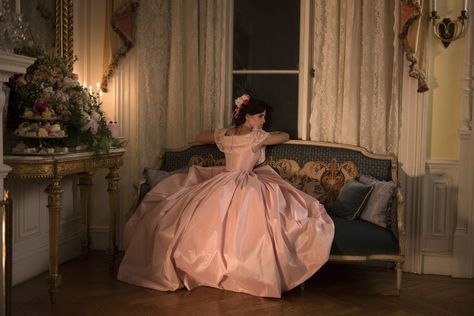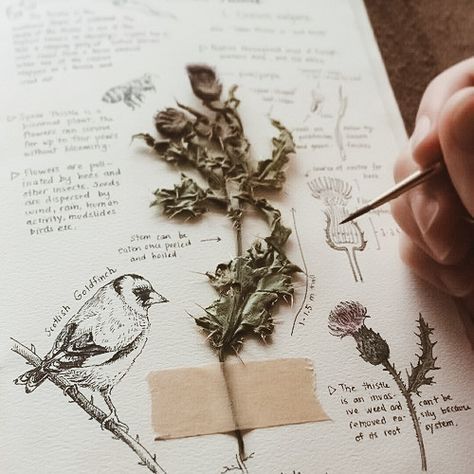#SPIRIT ANALYSIS SCIENCE
Explore tagged Tumblr posts
Text
#MEMORY ALPHA#MEMORY#ALPHA#WOOKIEEPEDIA#WIKIPEDIA#ENCYCLOPEDIAS#ENCYCLOPEDIAE#brad geiger#prince william#jesus#WINDSOR#WIND SOAR#HAWK#HAWKS#GREEN AND BLACK#BANNERS#FLAGS#TRANSLITERATE#BRITISH ENGLISH#SOUL ANALYSIS SCIENCE#SPIRIT ANALYSIS SCIENCE#ENERGY SIGNATURE ANALYSIS SCIENCE#PERSONAL ELECTRICAL COHERENCE ANALYSIS SCIENCE#TECHNOLOGY#TEXT#TXT#DATA#INFORMATION#SENSOR TIME#DATA PROCESSING TIME
46 notes
·
View notes
Text
academia sign as 𝔞𝔠𝔞𝔡𝔢𝔪𝔦𝔞 𝔞𝔢𝔰𝔱𝔥𝔢𝔱𝔦𝔠𝔰
academia (829)
𝔠𝔥𝔞𝔬𝔱𝔦𝔠 𝔞𝔠𝔞𝔡𝔢𝔪𝔦𝔞


aries / 1st house academia: aries in academia approaches learning with enthusiasm and a pioneering spirit. they thrive in competitive environments, enjoying subjects that allow them to take the lead, such as sports science, entrepreneurship, or anything requiring bold, innovative thinking. their learning style is hands-on and action-oriented, preferring to dive into projects rather than sit through lectures. quick to grasp new concepts, aries students excel in fast-paced, dynamic settings where they can showcase their initiative and drive. they are natural leaders in group work, often inspiring others with their energy and passion.
chaotic academia vibes: red bull, coffee, late-night study sessions, messy desk, sticky notes everywhere, highlighters galore, backpack overflowing, headphones tangled, running late, cramming, competitive studying, impulsive learning, last-minute cramming, energetic study sessions, motivational posters, pomodoro technique, study groups, mind maps, flash cards, music playlists
major & minor in college: history, english, psychology, theater, business, creative writing, philosophy, computer science, art history, sociology
𝔡𝔞𝔯𝔨 𝔞𝔠𝔞𝔡𝔢𝔪𝔦𝔞


taurus / 2nd house academia: taurus in academia is methodical and steady, approaching learning with patience and determination. they excel in subjects that involve tangible results or a connection to nature, such as agriculture, culinary arts, or finance. taurus students prefer a structured learning environment, where they can take their time to absorb information deeply and thoroughly. they have a strong memory and excel in retaining facts, often mastering subjects through repetition and consistent effort. their learning style is practical and grounded, focusing on real-world applications and long-term value.
dark academia vibes: leather-bound notebooks, vintage fountain pen, cozy sweater, warm coffee, comfortable armchair, candles, classical music, antique bookshelves, quiet library, natural light, slow & steady approach, consistent studying, structured routine, mindful studying, note-taking, reading extensively, researching deeply, essay writing, critical thinking, patience & perseverance,
major & minor in college: literature, history, art history, philosophy, classical studies, music, latin, greek, anthropology, environmental studies,
scorpio / 8th house academia: scorpio in academia is intensely focused and driven, diving deep into subjects that fascinate them, especially those involving psychology, criminology, or anything that uncovers hidden truths. they are natural researchers, drawn to mysteries and complexities, excelling in environments that require investigative skills and critical thinking. scorpio students prefer to study in private, where they can immerse themselves fully without distractions. they have a talent for uncovering details that others might overlook, and their determination to master a subject is unmatched. passionate and resilient, scorpio learners often emerge as experts in their chosen fields.
dark academia vibes: black coffee, leather jacket, intricate jewelry, vintage records, haunted library, gothic architecture, mysterious aura, intense gaze, quiet solitude, deep thoughts, intense focus, deep research, analytical thinking, critical analysis, debating, persuasive writing, problem-solving, independent study, night owl, passionate learning,
major & minor in college: psychology, philosophy, criminal justice, history, political science, sociology, anthropology, mythology, astronomy, creative writing,
𝔱𝔥𝔢𝔞𝔱𝔯𝔢 𝔞𝔠𝔞𝔡𝔢𝔪𝔦𝔞


gemini / 3rd house academia: gemini in academia is curious and versatile, thriving in environments where they can explore a wide range of subjects. they are natural communicators, excelling in fields like journalism, linguistics, or social sciences, where their quick wit and love for information can shine. gemini students prefer a dynamic, interactive learning environment, enjoying discussions, debates, and collaborative projects. their learning style is fast-paced and adaptable, allowing them to pick up new concepts with ease and shift focus between topics effortlessly. always eager to learn something new, gemini keeps their mind sharp by continuously seeking knowledge in various fields.
theatre academia vibes: script book, makeup bag, costumes, props, rehearsal space, stage lights, backstage passes, playbills, acting classes, impromptu performances, versatility, adaptability, improvisation, memorization, public speaking, character analysis, script analysis, ensemble work, storytelling, critical thinking
major & minor in college: theater, english, creative writing, communication studies, film studies, music, dance, history, psychology, sociology,
𝔠𝔬𝔷𝔶 𝔞𝔠𝔞𝔡𝔢𝔪𝔦𝔞


cancer / 4th house academia: cancer in academia is intuitive and emotionally connected to their studies, often drawn to subjects that resonate with their personal experiences, such as history, literature, or psychology. they excel in environments that feel nurturing and supportive, preferring to learn in a space where they feel safe and comfortable. cancer students have a strong memory, especially for details that evoke an emotional response, and they often approach learning with empathy and care. their learning style is reflective and deep, focusing on understanding the emotional and human aspects of any subject. sensitive to the needs of others, cancer can also be a compassionate and supportive peer in group settings.
cozy academia vibes: knitting needles, teacup, soft blanket, candles, cozy armchair, bookshelf filled with sentimental books, family photos, journal, soft music, homemade snacks, emotional intelligence, empathy, nurturing oneself, creating a comfortable study space, mindful studying, journaling, connecting with others, supporting others, patience & perseverance, emotional regulation
major & minor in college: english, history, psychology, sociology, social work, counseling, child development, family studies, art history, creative writing
𝔯𝔬𝔶𝔞𝔩 𝔞𝔠𝔞𝔡𝔢𝔪𝔦𝔞


leo / 5th house academia: leo in academia is confident and expressive, thriving in subjects where they can showcase their creativity and leadership, such as performing arts, literature, or leadership studies. they enjoy being at the center of discussions and excel in environments where their ideas and talents are recognized. leo students are passionate learners who bring enthusiasm to their studies, often inspiring others with their energy and charisma. their learning style is dynamic and interactive, preferring presentations and group projects where they can shine. with a natural flair for storytelling and self-expression, leo often excels in areas that allow them to be both creative and influential.
royal academia vibes: crown-shaped stationery, velvet robes, gold jewelry, vintage fountain pen, grand library, ornate furniture, elegant calligraphy, classical music, high-quality textbooks, personalized study supplies, confidence, leadership, public speaking, motivation, goal setting, networking, presentation skills, time management, creativity, passion
major & minor in college: history, political science, business, theater, art history, music, philosophy, classical studies, public relations, creative writing
𝔟𝔬𝔱𝔞𝔫𝔦𝔠𝔞𝔩 𝔞𝔠𝔞𝔡𝔢𝔪𝔦𝔞


virgo / 6th house academia: virgo in academia is analytical and detail-oriented, excelling in subjects that require precision and critical thinking, such as mathematics, science, or technical writing. they have a strong work ethic and prefer structured learning environments where they can methodically work through complex problems. virgo students are diligent researchers, often going above and beyond to ensure they fully understand a topic, and they have a knack for organizing information logically. their learning style is meticulous and focused, thriving on clear instructions and practical applications. with a keen eye for detail, virgo often excels in areas that demand accuracy and thoroughness.
botanical academia vibes: herbarium, plant journal, botanical prints, terrarium, gardening tools, natural light, plant-based stationery, herbal tea, nature-inspired décor, organized study space, organization, planning, time management, detail-oriented approach, note-taking, researching, problem-solving, critical thinking, patience, perseverance
major & minor in college: biology, environmental science, botany, horticulture, chemistry, agriculture, nutrition, health sciences, art history, creative writing
𝔯𝔬𝔪𝔞𝔫𝔱𝔦𝔠 𝔞𝔠𝔞𝔡𝔢𝔪𝔦𝔞


libra / 7th house academia: libra in academia is balanced and diplomatic, drawn to subjects that involve relationships, aesthetics, and justice, such as law, art, or social sciences. they excel in collaborative learning environments, enjoying discussions and group projects where they can exchange ideas and mediate differing opinions. libra students have a natural talent for seeing multiple perspectives, which makes them excellent at analyzing complex issues and finding harmonious solutions. their learning style is interactive and social, thriving in settings that allow for cooperation and mutual respect. with a strong sense of fairness and a love for beauty, libra often excels in areas that combine intellectual rigor with creativity.
romantic academia vibes: love letters, poetry collection, vintage jewelry, soft/pastel colors, romantic novels, flower arrangements, classical music, art galleries, beautiful stationery, cozy cafes, collaboration, harmony, diplomacy, balance, aesthetic appreciation, empathy, persuasion, critical thinking, creativity, open-mindedness
major & minor in college: english, history, art history, philosophy, psychology, sociology, communication studies, music, creative writing, design
𝔞𝔡𝔳𝔢𝔫𝔱𝔲𝔯𝔬𝔲𝔰 𝔞𝔠𝔞𝔡𝔢𝔪𝔦𝔞


sagittarius / 9th house academia: sagittarius in academia is adventurous and curious, drawn to subjects that expand their horizons, such as philosophy, travel, or global studies. they thrive in environments that offer freedom and exploration, preferring to learn through experience, travel, and broad, open-ended discussions. sagittarius students have a natural enthusiasm for big ideas and are often inspired by the pursuit of knowledge that challenges conventional thinking. their learning style is spontaneous and wide-ranging, excelling in areas where they can explore different cultures, beliefs, and philosophies. with an innate love for wisdom and truth, sagittarius often excels in fields that encourage lifelong learning and intellectual growth.
adventurous academia vibes: travel journal, global map, adventure novels, passport, backpack, camping gear, telescope, world atlas, foreign language textbooks, wanderlust-themed stationery, curiosity, open-mindedness, exploration, adaptability, risk-taking, global perspective, intercultural communication, problem-solving, independent study, passion for learning
major & minor in college: history, geography, anthropology, philosophy, foreign languages, international studies, environmental science, economics, creative writing, journalism
𝔴𝔦𝔫𝔱𝔢𝔯 𝔞𝔠𝔞𝔡𝔢𝔪𝔦𝔞


capricorn / 10th house academia: capricorn in academia is disciplined and strategic, favoring subjects that offer practical applications and long-term value, such as business, engineering, or finance. they excel in structured, goal-oriented environments where they can set clear objectives and work methodically towards achieving them. capricorn students have a strong work ethic and are adept at managing their time efficiently, often thriving on detailed planning and rigorous analysis. their learning style is focused and persistent, with a preference for mastering foundational concepts before advancing. with a keen sense of responsibility and determination, capricorn often excels in areas that require patience and sustained effort.
winter academia vibes: thick coat, scarf, warm coffee, cozy sweater, planner, bookshelf filled with textbooks, quiet study space, pen & paper, minimalist décor, structured routine, discipline, time management, goal setting, planning, persistence, problem-solving, critical thinking, researching, note-taking, long-term planning
major & minor in college: business, economics, law, political science, accounting, engineering, computer science, mathematics, history, philosophy
𝔣𝔲𝔱𝔲𝔯𝔦𝔰𝔱𝔦𝔠 𝔞𝔠𝔞𝔡𝔢𝔪𝔦𝔞


aquarius / 11th house academia: aquarius in academia is innovative and independent, gravitating towards subjects that involve technology, future trends, or social change, such as engineering, environmental science, or sociology. they thrive in learning environments that encourage original thinking and unconventional approaches, often preferring to explore new ideas and challenge established norms. aquarius students are skilled at grasping complex, abstract concepts and enjoy engaging in collaborative projects that push boundaries and promote collective progress. their learning style is progressive and exploratory, with a strong inclination towards experimenting with novel methods and solutions. with a keen interest in improving the world, aquarius often excels in fields that foster creativity and forward-thinking.
futuristic academia vibes: smartwatch, laptop, tech gadgets, futuristic eyewear, minimalist design, neon lights, sci-fi novels, futuristic architecture, virtual reality headset, sustainable products, innovation, problem-solving, critical thinking, future-oriented thinking, collaboration, interdisciplinary learning, ethical considerations, lifelong learning, adaptability, social consciousness
major & minor in college: computer science, engineering, physics, astronomy, artificial intelligence, environmental science, sociology, political science, psychology, philosophy
𝔬𝔠𝔢𝔞𝔫 𝔞𝔠𝔞𝔡𝔢𝔪𝔦𝔞


pisces / 12th house academia: pisces in academia is imaginative and intuitive, drawn to subjects that explore the arts, spirituality, or the human psyche, such as creative writing, music, or psychology. they excel in environments that allow for introspection and creative expression, often thriving in less structured settings that encourage personal interpretation and emotional depth. pisces students have a unique ability to grasp abstract concepts and connect disparate ideas, making them skilled at synthesizing information in innovative ways. their learning style is fluid and adaptable, with a preference for exploring topics through personal experiences and intuitive insights. with a deep sense of empathy and creativity, pisces often excels in fields that involve understanding and expressing the complexities of the human experience.
ocean academia vibes: seashells, aquarium, ocean-themed stationery, beach towel, nautical decor, marine biology books, beach reads, ocean-inspired jewelry, dreamcatcher, calming music, intuition, empathy, creativity, imagination, meditation, mindfulness, visualization, dream journaling, connection with nature, emotional intelligence
major & minor in college: marine biology, oceanography, environmental science, psychology, art history, creative writing, music, philosophy, sociology, religious studies,
all observations belong to @pearlprincess02
#academia#aries academia#taurus academia#gemini academia#cancer academia#leo academia#virgo academia#libra academia#scorpio academia#sagittarius academia#capricorn academia#aquarius academia#pisces academia#astrology#astro notes#astro observations#astro community#astrology observations#astro tumblr#astrology notes#astroblr#astrology aesthetic#dark academia#chaotic academia#theatre academia#cozy academia#romantic academia#winter academia#ocean academia
561 notes
·
View notes
Note
Greetings, I had request if you can post careers related to the 10th house/MC from both western and vedic perspective... Thanking you
Careers Related to the 10th House/MC: Western and Vedic Perspectives
The 10th house, often associated with the Midheaven (MC), is a pivotal house in astrology that governs career, public reputation, achievements, and how we strive for success. Both Western and Vedic astrology provide rich insights into the career potential through the analysis of this house, though they approach the interpretation differently.
Western Astrology:
In Western astrology, the 10th house and the Midheaven (MC) reveal the nature of one's career, public image, and long-term aspirations. The sign on the MC, the ruling planet of the MC, and any planets in the 10th house shape the direction of one’s professional life. Below is a breakdown of possible career paths based on the sign on the MC and the planets associated with the 10th house.
Aries MC: Individuals with Aries on the MC are natural leaders, driven by ambition and a pioneering spirit. They thrive in careers that allow them to take charge and lead, such as entrepreneurship, military roles, sports, or any field where quick decision-making and initiative are valued.
Taurus MC: Taurus on the MC suggests a career focused on stability, security, and material success. These individuals are drawn to professions in finance, real estate, agriculture, luxury goods, and any field where their practical nature and aesthetic sensibilities can shine.
Gemini MC: With Gemini on the MC, communication is key. These individuals excel in roles that involve writing, teaching, media, journalism, marketing, or any job that requires adaptability, networking, and intellectual engagement.
Cancer MC: Cancer on the MC often indicates a nurturing career path. These individuals may be drawn to professions related to caregiving, such as nursing, childcare, social work, or real estate, hospitality, and any job where creating a sense of home or emotional security is important.
Leo MC: Leo on the MC is associated with a desire for recognition and creative expression. Careers in entertainment, acting, politics, fashion, and leadership roles are common. These individuals often seek careers where they can stand out, inspire others, and express their creative talents.
Virgo MC: Virgo on the MC points to a meticulous and service-oriented approach to work. These individuals may excel in healthcare, research, editing, service industries, and any career that requires attention to detail, organization, and a focus on improving systems.
Libra MC: Libra on the MC is linked to careers involving beauty, harmony, and relationships. These individuals might be drawn to law, diplomacy, fashion, art, counseling, or any role that involves balancing opposing forces, aesthetics, or creating harmony in social settings.
Scorpio MC: Scorpio on the MC suggests a career involving intensity, transformation, and depth. These individuals may pursue careers in psychology, research, finance, detective work, or any field where they can explore the unknown, deal with crises, or engage in transformative work.
Sagittarius MC: Sagittarius on the MC is associated with careers that involve exploration, education, and the pursuit of knowledge. These individuals may find fulfillment in teaching, travel-related jobs, publishing, philosophy, or any field that allows them to broaden their horizons and share wisdom.
Capricorn MC: Capricorn on the MC is linked to ambition, structure, and long-term goals. These individuals are often drawn to careers in government, management, business, engineering, or any field where discipline, responsibility, and strategic planning are required.
Aquarius MC: Aquarius on the MC indicates a career path that involves innovation, humanitarian work, and social reform. These individuals may excel in technology, science, social causes, or any field where they can contribute to progressive change and work towards a better future for society.
Pisces MC: Pisces on the MC is associated with creativity, compassion, and spirituality. These individuals may be drawn to careers in the arts, healing, spirituality, film, photography, or any field where they can express their imagination and connect with the emotional or spiritual dimensions of life.
Vedic Astrology:
In Vedic astrology, the 10th house, also known as Karma Bhava, represents career, professional success, and one's contributions to society. The planet ruling the 10th house, the condition of Saturn (the natural significator of career), and the placement of planets in the 10th house are crucial in determining one's career path.
Sun in the 10th House: The Sun in the 10th house signifies leadership and authority. Individuals with this placement may pursue careers in government, politics, administration, or any role where they can be in charge. They are often seen in positions of power and influence, where their leadership qualities are recognized.
Moon in the 10th House: The Moon in the 10th house brings a nurturing and emotionally responsive approach to one's career. Individuals with this placement may excel in public relations, hospitality, healthcare, real estate, or any field that involves caring for others and creating a supportive environment. Their careers often involve a connection to the public or dealing with the needs of others.
Mars in the 10th House: Mars in the 10th house indicates a dynamic and action-oriented career. These individuals are likely to be drawn to careers in the military, engineering, sports, law enforcement, or any field that requires courage, determination, and physical energy. They excel in competitive environments and are often seen in roles that involve taking decisive action.
Mercury in the 10th House: Mercury in the 10th house signifies a career involving communication, intellect, and business acumen. Individuals with this placement may excel in writing, teaching, journalism, trade, commerce, or any profession that requires intellectual skills, adaptability, and the ability to convey information effectively.
Jupiter in the 10th House: Jupiter in the 10th house indicates a career in teaching, counseling, law, or finance. These individuals are often drawn to roles that involve guiding others, sharing knowledge, and upholding ethical principles. They may find success in academic fields, religious institutions, or any profession where wisdom and morality are valued.
Venus in the 10th House: Venus in the 10th house suggests a career in the arts, entertainment, fashion, or luxury goods. These individuals are often drawn to professions where beauty, aesthetics, and creativity play a central role. They may also find success in diplomacy, public relations, or any field that requires charm, social skills, and a sense of harmony.
Saturn in the 10th House: Saturn in the 10th house indicates a disciplined and structured approach to one's career. These individuals may pursue careers in politics, engineering, construction, or labor-related jobs. They are often seen in roles that require responsibility, hard work, and long-term commitment. Saturn's influence may also lead to careers involving law, administration, or any field where persistence and patience are key.
Rahu in the 10th House: Rahu in the 10th house signifies unconventional and innovative career paths. These individuals may be drawn to careers in media, technology, foreign jobs, or any field that involves breaking new ground and challenging societal norms. They may also find success in professions that deal with mystery, research, or hidden knowledge.
Ketu in the 10th House: Ketu in the 10th house indicates a career focused on spiritual pursuits, research, or the occult. These individuals may be drawn to roles that involve detachment from material success, such as in astrology, spiritual counseling, or any field where inner wisdom and insight are valued over external recognition. Ketu's influence may also lead to careers in fields that require a deep understanding of the metaphysical or esoteric.
Additionally, the D10 chart (Dasamsa) is used for a deeper analysis of career prospects.
I hope this helps! ♥️
©️kleopatra45
#astrology#astrology community#astroblr#astro notes#astrology observations#astrology readings#astrology tumblr#houses in astrology#astro community#vedic astrology observations#vedic astro notes#vedicastrology#vedic astro observations#vedic chart#vedic astrology
114 notes
·
View notes
Text
[“Women have outnumbered men as psychiatric patients since the mid-nineteenth century and, as Ussher (2011: 1) states, they have been, “more likely to receive psychiatric ‘treatment,’ ranging from hospitalisation in asylum, accompanied by restraint, electro-convulsive therapy (ECT) and psychosurgery, to psychological therapy and psychotropic drug treatments today.” The history of the psy-professions’ pathologisation and abuse of women for being women is deeply disturbing and should shame even the most ardent supporters of the mental health experts. In the name of science and progress, the mental health system has sought to control almost all aspects of women’s experiences, emotions, and behaviour through physical and moral interventions. Chesler (2005: 218) notes, for example, that many women were incarcerated in asylums for making claims of sexual abuse against their family, mothering “illegitimate” children, or for “suspected lesbianism.” Further, Masson (1986) compiled a collection of highly authoritative psychiatric articles on women from the nineteenth century to vividly demonstrate that acts of physical constraint, rape, torture, and female castration by the profession were all justified as appropriate (if not mandatory) treatment for women who questioned or defied their place in Victorian society. The discussion in this chapter, however, is concerned specifically with explaining the central reasons for previous female oppression by the psy-professions as well as the continuation and expansion in neoliberal society of what Ehrenreich and English (2011) have called the “sexist ideology” of medical professionals. As none of the mental disorders in the DSM with which women have been labelled have validity (Chap. 1), psychiatric interventions cannot be argued to be concerned with the care and treatment of any real distress that women may experience. Instead, we need to understand such institutional interventions within the broader context of structural gender inequalities in capitalist society. As Penfold and Walker (1983: vi) have summated, “[p]sychiatry is an institution in a society in which women are oppressed [and it] plays a specific role in that oppression.” A critical understanding of psychiatry’s focus on women, gender roles, and deviance can only be fully understood through a thorough assessment of the structural determinants of the division of labour in capitalist society which has devalued female roles and confined women to the status of second-class citizens. This analysis necessitates an investigation of patriarchal forms of domination and the intersectionality with the relations of production—something that has concerned a host of critical feminist scholars since the advent of second wave feminism in the late 1960s.
My argument here is that while an examination of the psychiatric profession clearly demonstrates that it continues to be an institution of patriarchal power, the distinctive form that structures this oppression is determined by the needs of capital (such as the requirement for paid and unpaid labour, the reproduction of the labour force, the necessity to suppress working-class resistance, and the normalisation of gender roles in industrial society as “natural,” equitable, and common sense). Thus, the critical analysis outlined here follows in the spirit of Donna Haraway (1978: 25) who has succinctly argued that “[t]he biosocial sciences have not simply been sexist mirrors of our own social world. They have also been tools in the reproduction of that world, both in supplying legitimating ideologies and in enhancing material power.”]
bruce m.z. cohen, from psychiatric hegemony: a marxist theory of mental illness, 2016
41 notes
·
View notes
Text


Research Discovers Ancient Egyptian Mummies Smell Nice
At first whiff, it sounds repulsive: sniff the essence of an ancient corpse.
But researchers who indulged their curiosity in the name of science found that well-preserved Egyptian mummies actually smell pretty good.
“In films and books, terrible things happen to those who smell mummified bodies,” said Cecilia Bembibre, director of research at University College London’s Institute for Sustainable Heritage. “We were surprised at the pleasantness of them.”
“Woody,” “spicy” and “sweet” were the leading descriptions from what sounded more like a wine tasting than a mummy sniffing exercise. Floral notes were also detected, which could be from pine and juniper resins used in embalming.
The study published Thursday in the Journal of the American Chemical Society used both chemical analysis and a panel of human sniffers to evaluate the odors from nine mummies as old as 5,000 years that had been either in storage or on display at the Egyptian Museum in Cairo.
The researchers wanted to systematically study the smell of mummies because it has long been a subject of fascination for the public and researchers alike, said Bembibre, one of the report’s authors. Archeologists, historians, conservators and even fiction writers have devoted pages of their work to the subject — for good reason.
Scent was an important consideration in the mummification process that used oils, waxes and balms to preserve the body and its spirit for the afterlife. The practice was largely reserved for pharaohs and nobility and pleasant smells were associated with purity and deities while bad odors were signs of corruption and decay.
Without sampling the mummies themselves, which would be invasive, researchers from UCL and the University of Ljubljana in Slovenia were able to measure whether aromas were coming from the archaeological item, pesticides or other products used to conserve the remains, or from deterioration due to mold, bacteria or microorganisms.


“We were quite worried that we might find notes or hints of decaying bodies, which wasn’t the case,” said Matija Strlič, a chemistry professor at the University of Ljubljana. “We were specifically worried that there might be indications of microbial degradation, but that was not the case, which means that the environment in this museum, is actually quite good in terms of preservation.”
Using technical instruments to measure and quantify air molecules emitted from sarcophagi to determine the state of preservation without touching the mummies was like the Holy Grail, Strlič said.
“It tells us potentially what social class a mummy was from and and therefore reveals a lot of information about the mummified body that is relevant not just to conservators, but to curators and archeologists as well,” he said. “We believe that this approach is potentially of huge interest to other types of museum collections.”
Barbara Huber, a postdoctoral researcher at Max Planck Institute of Geoanthropology in Germany who was not involved in the study, said the findings provide crucial data on compounds that could preserve or degrade mummified remains. The information could be used to better protect the ancient bodies for future generations.
“However, the research also underscores a key challenge: the smells detected today are not necessarily those from the time of mummification,” Huber said. “Over thousands of years, evaporation, oxidation, and even storage conditions have significantly altered the original scent profile.”
Huber authored a study two years ago that analyzed residue from a jar that had contained mummified organs of a noblewoman to identify embalming ingredients, their origins and what they revealed about trade routes. She then worked with a perfumer to create an interpretation of the embalming scent, known as “Scent of Eternity,” for an exhibition at the Moesgaard Museum in Denmark.
Researchers of the current study hope to do something similar, using their findings to develop “smellscapes” to artificially recreate the scents they detected and enhance the experience for future museumgoers.
“Museums have been called white cubes, where you are prompted to read, to see, to approach everything from a distance with your eyes,” Bembibre said. “Observing the mummified bodies through a glass case reduces the experience because we don’t get to smell them. We don’t get to know about the mummification process in an experiential way, which is one of the ways that we understand and engage with the world.”



#Research Discovers Ancient Egyptian Mummies Smell Nice#Egyptian Museum in Cairo#ancient tombs#ancient graves#grave goods#ancient artifacts#archeology#archeolgst#history#history news#ancient history#ancient culture#ancient civilizations#ancient egypt#egyptian history#egyptian hieroglyphs#egyptian art#ancient art
24 notes
·
View notes
Text
Zedaph: "Why?" Well, for the noblest reasons! Firsthand edification! Science! Analysis! To see what would happen!
Xisuma, on the verge of a heart attack: YOU'VE DISLOCATED BOTH OF YOUR ARMS!
Zed: In the spirit of—hey Skizz, could you lift my arm up a second?
Skizz: *holds Zed's dislocated arm up in a grand gesture*
Zed: Thank you—IN THE SPIRIT OF DISCOVERY!
Xisuma, questioning every choice he has ever made:
#source: lackadaisy breakthrough#incorrect hermitcraft quotes#hermitcraft incorrect quotes#zedaph#zedaphplays#xisuma#xisumavoid#reluctant admin x#skizz#skizzleman#aerial sheep service#or two thirds of it anyway#aerial fox service#hermitcraft#hermitblr
137 notes
·
View notes
Text

— storms and spirits
Albert Wesker x f!reader
rated e - 1,214 words
tags: STARS captain Wesker, set just before the events of Resident Evil and the Spencer Mansion situation, reader is Chris Redfield's younger sibling, caught in a storm, drinking after work with your boss
prompt: smooth whiskey / soaked clothes from angellilacs
dividers: saradika graphics
notes: Writing Wesker pre RE is so strange. May have made him a bit too soft here? But I think he'd be keeping his cover as Captain before the betrayal. Since I love fluff and comfort, some ooc behavior makes for a happy author.
Welcome to your first day as a Raccoon Police Department S.T.A.R.S. officer. Don't get caught in a storm while on patrol with your Captain.

You had chosen to follow in your older brother's footsteps. The news would come as a surprise to literally no one though. Chris had raised you after the death of your parents. You even had a Swiss Army Knife in your hand the second you turned thirteen. Both for self defense, but also to be like dearest big brother. Always helping people whenever you could. And that meant being a S.T.A.R.S. officer.
The S.T.A.R.S. team only worked because of all the various skill sets. Each unit was based around a team of five operators and one pilot. Though all members were well versed in tactical combat, each had their own skill set that would prove helpful on missions, ranging from recognition of chemical weapons, computer expertise, criminal science, firearms analysis, and sharpshooting.
You had been a shoe in for the most recent job opening. Volunteering within the S.T.A.R.S. office since you were sixteen, you'd spent weekends cleaning weapons and organizing files of closed cases. Your friendly and hardworking demeanor won everyone over, including Captain Wesker. The older man had actually been the one to slide Chris the job application form to pass along to you. After all, the shine you took to chemistry class had led to a university degree in the subject. The additional first aide training from summers spent as a lifeguard made you a perfect fit for handling chemicals and serving as team medic.
It had been no surprise that you were immediately offered the job. Barry, your favorite officer, even had your favorite donut from Moon's waiting on your desk on your first day. All the required trainings had been passed on your part, and you were cleared for duty. You settled in at your desk while straightening out your white shirt with the S.T.A.R.S. emblem proudly over the left sleeve. The M69 Flak vest in royal blue provided some warmth against the gloomy, dark clouds outside.
It had only been an hour of reviewing documents and answering emails before the assignment came in. A far cry from the standard operation of cyber crime and hostage situations, the task was simply to investigate the orphanage across town. Some residents had complained of screaming and breaking glass at the Raccoon City Orphanage just north of the police station.
"Redfield."
Wesker's clear, commanding voice cuts through the office. Both you and Chris turn to look at your captain emerging from his corner office, both of you starting to rise from your respective desks. Wesker shakes his head before pointing at you.
"Just little red for now. We'll go out and do recon. Barry, you take point until we get back."
You rise to your feet, grabbing your gear. Your leg holsters and combat knife sheath were soon ready with your Beretta 92FS service weapon and custom made combat knife. You fall in step besides Wesker, lengthening your stride to match his. Cutting through the West hallway to the library, you soon make your way out the front entrance.
"We'll walk for now. It'll be quicker."
His voice stops you in your tracks, your path veering off towards the nearby patrol cars parked nearby. You correct your route and walk alongside him once more. A silence that would have been uncomfortable for anyone else falls over you. But, not for you. Someone who knows the way to this man's heart is raspberry donuts and black coffee, as well as any compliment on his black sunglasses that never leave his face.
The walk to the orphanage is brief, the cloudy skies growing darker. A subtle air of annoyance seems to waft from your Captain the closer you get to the crumpling building.
"It's probably nothing. People have been flaky recently. Must be something in the air."
He explained, a hint of coldness in his tone before he peers through the fence at the building. Nothing was out of place, save for the overgrown grass in the front yard. You both spend at least an hour inspecting every inch of the property and questioning the staff of the orphanage. No broken glass, no screams. Nothing. You catch his shoulder's relax slightly as you begin to return to the station.
The weather only waits a mere second before the sky opens up, drenching you both in frigid rainwater. Wesker catches your elbow and silently urges you to speed up. You match his pace as you both run through the rain. Rather, you try. Wesker is hardly winded after your five minute sprint back to the cover of RPD, whereas you are doubled over with your hands on your knees while sucking in precious air. Both of you are utterly soaked to the skin.
You start shivering the second you reenter the police station, the air conditioning biting through your damp uniform. Trudging after Wesker, you disappear into the women's locker room to dry off. You have no clothing here in your locker, no one thinks to bring a backup outfit on their first day. A soft knock at the bathroom door draws your attention, you peek out and see a neatly folded stack of clothing. Much too big for you, the S.T.A.R.S. sweatshirt and black gym shorts could have easily fit any of the male officers. You quickly get changed and return to the S.T.A.R.S. office down the hall.
Thankfully, the rest of your 12 hour shift is uneventful. As you get up to follow Chris to your car, you rub your tired eyes. You still don't know whose clothing you have on your body, but it smells faintly of pomegranate and deep velvet. With two fingers pointed at you, Wesker catches your eye and beckons you into his office.
"Yes, Captain?"
"Sit. How do you feel? No longer shaking like a leaf I see."
"I'm fine, sir. This is definitely not how I imagined my first day."
You sit on the wooden chair before Wesker's desk, watching as the older man rummages through drawers. A small bottle of finely aged whiskey and two shot glasses are set on his desk with a soft clink.
"Tradition, little Red."
Wesker explained, pouring you both two fingers of the bronze liquid in each glass. Chris stifled a laugh from where he waited for you by the door. You knew exactly why, you didn't really drink. And when you did, it was something light and fruity. The complete opposite of the glass before you.
You nod, taking the glass before hesitating. Should you really drink with your boss, even if you aren't on the clock. As if sensing your hesitation, Wesker makes an obvious show of turning his chair away from you before downing his glass. You blush slightly before doing the same, coughing at the sharp burn. As you stand to leave, you catch an amused smirk flit across his face as he collects the glasses. His smooth voice stops you before you can make it out the door.
"I'm sure you'll make me proud. After all, you are one of mine now."
You nod before following your older brother out the door. Chris laughs as he takes in your disheveled appearance with a teasing grin on his face.
"Storms and spirits. What a first day. I'll be sure to keep a close eye on you, little sis."

22 notes
·
View notes
Note
Do you think believing in Scientology would be in conflict with Marxist analysis
out: christian-socialist woodie gurthrie IWW wobbly America Belongs To White Workers appalachia-core
in: scientologist-socialist revolution against thetan spirits california-core
fr though the cold-war US nuke cult is probably not meaningfully compatible with marxism, because at some point either you have to give the class struggle precedence over the alien ghosts or you give the alien ghosts precedence over the class struggle. you can't really be a True Believer of both science and scientology at once, one of them's gonna be halfhearted
102 notes
·
View notes
Text
ive finaly managed to lay it out my major interests. i dont know what took me so long to be able to do that. i posted it to bluesky but i’ll do it here too. i need a new pinned post anyway.
22 neurodivergent ass autistic goth nerd and other-proclaimed “wizard”
things i’m interested in:
science: ALL natural science, esp. neuroscience, neuropsychology, psychology (the mind), biology, anatomy & physiology, ecosystems
other realms: philosophy, sociology, anthropology, human ethology, personality differences
natural noumena: patterns in nature, emergence, self-organization / spontaneous order, chaos theory and fractals
tropes / archetypes
analytical psychology / jungian analysis (not in association to jordan peterson, whom i think is a chode. this is significant to me, because i feel like i share the phenomenological reality with jung that formed the basis of his ideas. many of these forces i’ve noticed on my own, separate from him, before i knew him. so seeing his ideas i was like “oh he put it into words. glad to know someone else has a keen sense for these phenomena”)
socionics model A
other typological systems: enneagram, mbti (not 16personalities), etc. (quizzes are lazy minded, reading the theoretical foundations helps it feel much more significant)
eclectic alternative music subcultures + history: esp. 70s-80s, experimental, psychedelic rock, punk, new wave, post-punk, goth rock, industrial
the venture bros. (bonus points if you understand most of the references because this show is like my personal catnip)
jhonen vasquez: jthm, squee, i feel sick, invader zim (decade+ old fan)
david lynch: twin peaks, eraserhead, blue velvet, mulholland drive, etc
jon bois: pretty good, 17776/20020, chart party, team history documentaries, etc
blaseball
vinesauce
pokemon: in general, but esp. game mechanics
gravity falls (decade old fan)
homestuck (decade old fan)
mother series
star trek* (*slowly immersing myself)
lots of more stuff i probably missed
typology type profile: LII-Ne IN(T) INFJ 5w4 so/sp 514 |R|COAI
random things i want to say:
given enough time i think i could probably explain anything
i live in a very isolated pocket of my own taste in art/music where im not really aware of what everyone else is listening to because it just…doesnt really cross my mind ever? i found out brian eno said something similar, “If I tried to make a commercial album, it would be a complete flop. I have no idea what the world at large likes.” i told my friend the other day i feel like i understand my self through music and art, because of the accumulation of my taste i can actually experience my unconscious preference and know what i feel my own experiences reflected in
im best at self-reflection and observations of own my own mental processes
if i were forced to kin a homestuck character it would be aradia megido. we’re very close in spirit
i have similar mannerisms to dipper pines. first time i saw a cartoon character and felt represented
another brian eno quote i strongly relate to: “Sometimes you recognize that there is a category of human experience that has not been identified but everyone knows about it. That is when I find a term to describe it.”
49 notes
·
View notes
Text
The demons compelled me to write an essay explaining why I think that Victor Frankenstein is autistic.
(Essay below the cut, or just read it on AO3)
Frankenstein through an autistic lens (2145 words) by Dragon_Shark28 Chapters: 1/1 Fandom: Frankenstein - Mary Shelley, Lisa Frankenstein (2024) Rating: Not Rated Warnings: No Archive Warnings Apply Relationships: Henry Clerval & Victor Frankenstein & Elizabeth Lavenza, Victor Frankenstein & Frankenstein's Creature Characters: Victor Frankenstein, Frankenstein's Creature, Henry Clerval, Elizabeth Lavenza Additional Tags: Essays, Autistic Victor Frankenstein, i wrote this in the span of two days, the demons compelled me Summary: A behavioral analysis I wrote on why the character of Victor Frankenstein most likely has autism spectrum disorder (the man named Victor Frankenstein has been consuming my life and he definitely is a bit silly and most of his behavior can be explained with autism!)
Frankenstein Vs. Autism
Narcissistic, selfish, immoral. These are all words commonly used to describe Victor Frankenstein but they are also used to describe autistic people. Autism is common, much more than many people think. Most people know someone with the condition personally, a friend, family member, classmate, or figure in their life. Many people assume that they can immediately tell if someone is autistic but this is far from the truth. Autistic people do something called ‘masking’ - a trait that is prevalent across the neurodivergent family. Masking is the adoption of social practices, such as eye contact, facial expressions, and speaking when expected, to name a few. 2.2% of people in the U.S. are diagnosed, but the number is certainly much higher because of gender bias and lack of access to resources. Frankenstein by Mary Shelly is a heavily debated book in classic horror literature. Whether people are discussing how it could be an allegory for teen pregnancy or the similarities between the creature and titular character as the book progresses, chances are his neurodivergent traits will be mentioned, even if that isn’t what they are identified as. Many people use these reasons to dislike Victor since many of his behaviors are seen as odd or socially rude. Victor shows many traits of autism throughout the book, both internally and externally.
A special interest is a longtime obsession that most autistic people have, such as Pokèmon or human anatomy/injury to name an example. Victor speaks about his childhood, “My temper was sometimes violent, and my passions vehement; but by some law in my temperature they were turned not towards childish pursuits but to an eager desire to learn, and not to learn all things indiscriminately…It was the secrets of heaven and earth that I desired to learn; and whether it was the outward substance of things or the inner spirit of nature and the mysterious soul of man that occupied me, still my inquiries were directed to the metaphysical, or in it highest sense, the physical secrets of the world” (Shelly 23). Some people will attempt to learn everything they can about their special interest while others are content just vibing along and collecting objects or things that relate to it. Victor falls into the former category, adoring chemistry and biology - perhaps to an unhealthy level. He longs to learn of these topics instead of playing like his peers do, causing him to not have many friends. While similar to a hyperfixation, a special interest can last months or often years. When speaking about his university days, Victor says,”From this day natural philosophy, and particularly chemistry, in the most comprehensive sense of the term, became nearly my sole occupation. I read with ardour those works, so full of genius and discrimination, which modern inquirers have written on these subjects. I attended the lectures and cultivated the acquaintance of the men of science of the university…My application was at first fluctuating and uncertain; it gained strength as I proceeded and soon became so ardent and eager that the stars often disappeared in the light of morning whilst I was yet engaged in my laboratory” (Shelly 37). Victor quite obviously loves chemistry more than anything else in the world. He goes to every lecture and class that the University of Ingolstadt hosts.
Autistic people often have issues connecting to other people on an emotional level. After he returns home from Ingolstadt, he says, “Ernest began to weep as he said these words. “Do not,” said I, “welcome me thus; try to be more calm, that I may not be absolutely miserable the moment I enter my father’s house after so long an absence” (Shelly 48). Ernest just lost his brother whom he was very close to. He was playing with William when he ran away and was murdered and certainly blames himself for it. Victor is unable to understand the cause of his brother’s distress and is only frustrated because it causes him to become upset as well.
Low empathy often causes people to find their own emotions and desires more important than others’. When Victor goes to visit the condemned Justine, he states, “During this conversation I had retired to a corner of the prison room, where I could conceal the horrid anguish that possessed me. Despair! Who dared talk of that? The poor victim, who on the morrow was to pass the awful boundary between life and death, felt not, as I did, such deep and bitter agony” (Shelly 74). He is extremely upset by his inner turmoil because of how his younger brother Ernest died since their servant Justine has been burdened with the blame of the crime and shall soon be put to death. He can’t relate to her struggle and pain because he doesn’t believe that it can compare to his. The knowledge that his creation killed his younger brother but he can’t tell anyone for fear of being called crazy weighs heavily on him.
Many people with autism have difficulty making friends or simply choose not to. When Victor is speaking about his childhood, he says, “It was my temper to avoid a crowd and to attach myself fervently to a few. I was indifferent, there-fore, to my school-fellows in general” (Shelly 23). Most neurotypical children easily form bonds with their peers because they understand how they’re supposed to act but neurodivergent children often have more difficulty with this process because they may act or speak in a way that repels people. Victor has no desire to form friendships with children his age because he can’t connect with them, as he says “It was my temper” (Shelly 23). His passion for science isn’t something that most children his age share.
However, when autistic people do choose to form friendships, they often connect in a very deep way, forming strong emotional bonds.Victor also mentions, “But I united myself in the bonds of the closest friendship to one among them. Henry Clerval was the son of a merchant of Geneva” (Shelly 23). The behavior of choosing one or two people to attach themself to is common for autistic people, since it can help them mask better. Victor chooses someone who matches his freak, albeit in a different direction. While Victor obsesses over science, Henry desires to become a name in history - a heroic figure.
Many autistic people hyperfixation on one thing - depriving themself of self-care and anything besides their topic of focus until their obsession has run its course. When Victor talks about creating the creature, he says,”I pursued my undertaking with unremitting ardour. My cheek had grown pale with study, and my person had become emaciated with confinement…Winter, spring, and summer passed away during my labours; but I did not watch the blossom or the expanding leaves sights which before always yielded me supreme delight so deeply was I engrossed in my occupation” (Shelly 40-42). Victor sets his sights on creating a race of beings invulnerable to disease and death and he’ll be damned if that isn’t what he does. He deprives himself of health and company so he can finish his experiment, certainly without realizing the effects on his body until later. When their brain gets bored of their fixation, people will often feel disgust or distress at their topic they so strongly fixated on such as Victor’s anger at his creation. When the creature comes to life, Victor says, “Whom with such infinite pains and care I had endeavoured to form…I had worked hard for nearly two years, for the sole purpose of infusing life into an inanimate body. For this I had deprived myself of rest and health. I had desired it with an ardour that far exceeded moderation; but now that I had finished, the beauty of the dream vanished, and breathless horror and disgust filled my heart” (Shelly 43). The Creature no longer tickles his brain in a way that feels good, added by the disappointment of not executing him to the expectation he held. He expected one thing and when that expectation wasn’t met, he couldn’t fit it properly into the reality he knew.
Autistic people often have a difficult time understanding sarcasm, even if they can wield it themself. In the first chapter of the book, Victor says, “She presented Elizabeth to me as her promised gift, I, with childish seriousness, interpreted her words literally and looked upon Elizabeth as mine-mine to protect, love, and cherish” (Shelly 21). While this could simply be a child’s simplistic perspective on life, many children understand levels of simple exaggeration at the age of five - the age Victor was when this occurred. Victor however, held this belief until his death, while a neurotypical person would certainly have realized the true meaning of her words by the time they reached adulthood. To many readers, the point after Victor disassembles the Creature’s half-built wife’s effect is clear - the Creature intends to kill Victor’s fiance Elizebeth on their wedding night but to Victor however, it is the opposite.Before the creature leaves after Victor kills his mate, he says,”It is well. I go; but remember, I shall be with you on your wedding-night.”… All was again silent, but his words rang in my ears. I burned with rage to pursue the murderer of my peace and precipitate him into the ocean…And then I thought again of his words - “I will be with you on your wedding-night." That, then, was the period fixed for the fulfillment of my destiny. In that hour I should die and at once satisfy and extinguish his malice” (Shelly 158). Victor takes what the creature says at face value - believing that the Creature plans to face him in a final showdown. This is another example of Victor taking things too literally despite the true subtext being clear - at least to a neurotypical. Despite that it makes sense for his wife to be killed as punishment for the creature’s wife dying - an eye for an eye - Victor believes he must face the creature for the final time, face his sins.
Stims are self soothing or stimulating movements that everyone performs although it’s increased in autistic and adhd people. Captain Robert Walton describes Victor, “Does him any the most trifling service, his (Victor) whole countenance is lighted up, as it were, with a beam of benevolence and sweetness that I never saw equalled. But he is generally melancholy and despairing; and sometimes he gnashes his teeth, as if impatient of the weight of woes that oppresses him” (Shelly 11). Victor’s most obvious stim is his teeth gnashing. He does this oral stim throughout the book whenever he feels a strong emotion - most commonly anger or sadness. Victor has a kind soul but an offsetting personality and most likely depression.
Autistic people often stim when they don’t know what to do in a situation.
Victor lurks in a corner to avoid excess stimulation when he states, “The poor victim, who on the morrow was to pass the dreary boundary between life and death, felt not as I did, such deep and bitter agony. I gnashed my teeth, and ground them together, uttering a groan that came from my inmost soul” (Shelly 74). This is both an example of Victor’s low empathy and stimming. He doesn’t know how to deal with his internal conflict, turning subconsciously stimming to regulate himself.
Autistic people have always existed since the beginning of the human race - or perhaps even earlier in Neanderthals or our primate relatives. Even though the label of ‘autistic’ didn’t exist in Mary Shelly’s time, that certainly doesn’t mean that people with the disorder didn’t. Throughout time, they have been called anything from changings or fae to the r slur. Most people don’t like it when someone doesn’t conform to the social standards and neurodivergent people still die for it today. It’s also important to note that neurodivergent is a wide label and doesn’t just include the identities of autism, adhd, anxiety, and depression. People who have cluster disorders such as bipolar disorder, obsessive compulsive disorder, and antisocial personality disorder, people with tic disorders, and dys disorders all fall under the neurodivergent spectrum. The term simply means that your brain doesn’t function like a “normal” brain does, which means that Victor Frankenstein almost certainly was neurodivergent. Other popular speculations in the gothic literature community include narcissistic personality disorder and bipolar disorder. Autism spectrum disorder makes the most sense however, due to the multitude of symptoms that Victor presents throughout the book, autism spectrum disorder seems to be the most likely. The quotes in this are all taken from the 1831 version of the text as opposed to the 1818 version, which is more focused on the hubris of man and therefore, certainly has more evidence to support Victor Frankenstein being on the Autism spectrum.
14 notes
·
View notes
Text
Socialism: Utopian and Scientific - Part 3
[ First | Prev | Table of Contents | Next ]
"Materialism is the natural-born son of Great Britain. Already the British schoolman, Duns Scotus, asked, 'whether it was impossible for the matter to think?'
"In order to effect this miracle, he took refuge in God's omnipotence — i.e., he made theology preach materialism. Moreover, he was a nominalist. the first form of materialism, is chiefly found among the English schoolmen. "The real progenitor of English materialism is Bacon. To him, natural philosophy is the only true philosophy, and physics based upon the experience of the senses is the chiefest part of natural philosophy. Anaxagoras and his homoiomeriae, Democritus and his atoms, he often quotes as his authorities. According to him, the senses are infallible and the source of all knowledge. All science is based on experience, and consists in subjecting the data furnished by the senses to a rational method of investigation. Induction, analysis, comparison, observation, experiment, are the principal forms of such a rational method. Among the qualities inherent in matter, motion is the first and foremost, not only in the form of mechanical and mathematical motion, but chiefly in the form of an impulse, a vital spirit, a tension — or a 'qual', to use a term of Jakob Böhme's [2] — of matter.
[2] "Qual" is a philosophical play upon words. Qual literally means torture, a pain which drives to action of some kind; at the same time, the mystic Bohme puts into the German word something of the meaning of the Latin qualitas; his "qual" was the activating principle arising from, and promoting in its turn, the spontaneous development of the thing, relation, or person subject to it, in contradistinction to a pain inflicted from without. [Note by Engels to the English Edition]
"In Bacon, its first creator, materialism still occludes within itself the germs of a many-sided development. On the one hand, matter, surrounded by a sensuous, poetic glamor, seems to attract man's whole entity by winning smiles. On the other, the aphoristically formulated doctrine pullulates with inconsistencies imported from theology. "In its further evolution, materialism becomes one-sided. Hobbes is the man who systematizes Baconian materialism. Knowledge based upon the senses loses its poetic blossom, it passes into the abstract experience of the mathematician; geometry is proclaimed as the queen of sciences. Materialism takes to misanthropy. If it is to overcome its opponent, misanthropic, flashless spiritualism, and that on the latter's own ground, materialism has to chastise its own flesh and turn ascetic. Thus, from a sensual, it passes into an intellectual, entity; but thus, too, it evolves all the consistency, regardless of consequences, characteristic of the intellect. "Hobbes, as Bacon's continuator, argues thus: if all human knowledge is furnished by the senses, then our concepts and ideas are but the phantoms, divested of their sensual forms, of the real world. Philosophy can but give names to these phantoms. One name may be applied to more than one of them. There may even be names of names. It would imply a contradiction if, on the one hand, we maintained that all ideas had their origin in the world of sensation, and, on the other, that a word was more than a word; that, besides the beings known to us by our senses, beings which are one and all individuals, there existed also beings of a general, not individual, nature. An unbodily substance is the same absurdity as an unbodily body. Body, being, substance, are but different terms for the same reality. It is impossible to separate thought from matter that thinks. This matter is the substratum of all changes going on in the world. The word infinite is meaningless, unless it states that our mind is capable of performing an endless process of addition. Only material things being perceptible to us, we cannot know anything about the existence of God. My own existence alone is certain. Every human passion is a mechanical movement, which has a beginning and an end. The objects of impulse are what we call good. Man is subject to the same laws as nature. Power and freedom are identical. "Hobbes had systematized Bacon, without, however, furnishing a proof for Bacon's fundamental principle, the origin of all human knowledge from the world of sensation. It was Locke who, in his Essay on the Human Understanding, supplied this proof. "Hobbes had shattered the theistic prejudices of Baconian materialism; Collins, Dodwell, Coward, Hartley, Priestley, similarly shattered the last theological bars that still hemmed in Locke's sensationalism. At all events, for practical materialists, Deism is but an easy-going way of getting rid of religion."
Karl Marx The Holy Family p. 201 - 204
[ First | Prev | Table of Contents | Next ]
33 notes
·
View notes
Text
MGS3 arguably has the most relevant symbols of what I call the MGS Cycle (MGS1, MGS2, and MGS3... and MGS5. Though MGS5 is more like a supplement and less a cyclic element. )--
--The reason MGS4 doesn't count, is because it breaks the narrative cycle, by convoluting its characters, turning the symbols meaningless, and well, ending the story without use of the cycle motifs--
MGS3 is a kind of map legend to the MGS Cycle motif. It breaks down the basic archetypes into their most obvious selves. EVA represents the Love Interest, Ocelot still dominates his archetype as the double-triple-crosser, the Sniper character in the End, the Ninja in the Fear, the in-over-his-head science-tech type found in Sokalov...
Ecctra, ecctra.
But the one prominent one that's important, that MGS3 puts in your face Look-Here Blazing-Signs because it is that important... and that's who the Boss stands for.
The Boss appears out of the fog of her first introduction, like a legend out of the fogs of myth. She is constantly praised as not just a Legend, but The Legend, the Mother of Legends even. She is the mentor, to where even Big Boss is but a student.
( Character analysis? She is also a broken women that has had literally everything robbed from her, including cognition, but still marches forward regardless. She is the embodiment of the saying that one can control nothing in life but their attitude. Quite frankly, I got real sick of hearing people praise her and questioned how come nobody is trying to actually Help her. She says things that come out of left field and don't make a whole lot of contextual sense, like she's not always present, and that's saying something given that we're in Metal Gear. The only time she ever seems to truly focus and is present is when she's on mission--Yes she was a legend, we know, but fuck, she needed Help, not Praise. What the hell is wrong with the MGS3 Cast. )
The Boss is represented by a snake, yes, given she leads the Cobra Unit and she is arguably where Naked Snake himself gets all his icons (which he will later drop as Big Boss), but she is also represented by the Horse.
And not just any Horse either... though we do see her literal horse, which is why this narrative symbolism is even being considered.
And Remember that MGS3 is when we get introduced to Chinese elements through Eva, just as Ocelot introduced / introduces Wild West elements.
One of the more important Chinese Horse symbols, is the Idea Horse or the Horse of Will. It is the embodiment of the indomitable human body and spirit, and often paired up with the Monkey of Mind, or the embodiment of the unfettered human mind.
There was a famous Chinese story that ran with these exact motifs--and that's Journey to the West.
Only instead of Sun Wukong (Who is arguably the more fitting of an setting filled with Hollywood Action Films that MGS likes to mimic), MGS embodies and centers around one of the other disciples--Bai Long Ma, the White Horse Dragon, and representative of the Horse of Will.
( And that's not getting into how horses and snakes are often combined mythologically anyway )
Through both narrative motifs, ancient literary symbols (The Horse), and of course, MGS cycle archetypes (The Snake), the Boss represents the indomitable human will.
There is, in fact, no opponent in the MGS Cycle that we face, that represents that archetype, though it is the most important archetype of all MGS.
Because we've faced them as an opponent before, but we have played them as a player character.
And that's Solid Snake.
ADDENDUM: THE REASON MGS IS (MEANT TO BE) A CYCLE
The reason I call it the MGS Cycle, is because it is a repetitious story, inspite of background elements.
The Indomitable Will (Solid Snake) is at the end of his trials of Self, and takes his last trial of self--Facing the Building Blocks of Life and History experienced (MGS1 whose key word is Gene, the literal building blocks of Life and all villians in MGS1 will claim that the steps experienced in their history has made them who they are), and facing down his worse self, his shadow, (Liquid Snake).
A new trialer begins their trials of self (Raiden), which starts facing what makes up their mind (MGS2 keyword is Meme--is your mind real, or is it merely made up of what you're informed is real), where the rookie asks himself what is real, what to believe, what led him to this point, and facing himself lest he fall into delusion.
The Indomitable Will, seeking to break the cycle to allow the world to remain as it was, mentors the new trialer (often through grueling methods) as he takes on his new trials.
Now the mentoree (Jack / Naked Snake), strong through his teacher's teachings, after succeeding his Trial of Mind, he now must face his Trial of Reality (MGS3's keyword is Scene, the World is a stage, now that you know you are real, is the world you're in real?) as the warrior he was built to be. Unfortunately, this trial involves facing off against the Indomitable Will who has already taken all her trials (The Boss).
... and the Mentoree fails, because by defeating the Indomitable Will, he breaks his own will in the process and, wins the mission but fails the trial. He becomes an aspect of the trials for the next Indomitable Will to face down.
This is how the cycle, by its motifs, works. If MGS4 had followed the set narrative cycle, it would've resulted in Raiden killing Solid Snake, just as Naked Snake killed the Boss, and setting Raiden up to become the next "Big Boss" archetype.
... And then the cycle starts over.
MGS5 is an odd supplement, because its worth more if you place its story motifs between MGS2 and MGS3, rather following after MGS4. It details how the Indomitable Will, in spite of its rebellion against the cycle, would get re-entrenched into the cycle. The Boss, for all her will power, is, for some reason, insanely shackled by loyalty to something that she knows means her harm. MGS5 shows the metaphorical shackling--how do you shackle the Indomitable Will? By forcing it into a false form.
#metal gear solid#metal gear solid 1#mgs 1#metal gear solid 2#mgs2#metal gear solid 3#mgs3#metal gear solid 5#mgsv#solid snake#raiden#big boss#the boss mgs#analysis#lots of use of metaphor here
23 notes
·
View notes
Note
I come to you for reprieve bc I’m drowning in work and wish to live vicariously through your acoeas Vanserra brothers.
What would each of the brothers do for work if they lived today?
Actually even better- what would they do for work versus what would they actually LIKE to do for work if they weren’t worried about Beron’s opinion (if that changes the answer at all).
Okay I apologize for taking so long to answer this 😂😭 I am not sure if you mean an AU modern day but I shall answer that! This is really hard and I'm a bit stumped because work gives me anxiety and I don't know shit about certain corporate jobs 😂😭
All of the brothers probably work as nepo-babies in Beron's big monopoly business (generic business idk what it could be, maybe like imports and exports or a corrupt business like Amazon🤷♀️)
Eris and Galeti would be in investor relations where they're talking to investors and showing them the business and making alliances, essentially. I feel like Eris enjoys that job and thrives in that sort of space but he wants to go higher, but Galeti is a stereotypical party boy who enjoys the talking and the investor parties instead of the business. He's pretty free spirited. I feel like it is so cliche but I feel like he would love to be a bar tender at a club or something.
Elmar and Aatos would work in the online security side of the business. Elmar is basically bullshitting it and fucking around in his office and enjoying his time bossing people around, and Aatos actually does the work. Aatos is very good at what he does but he HATES being behind the computer. If he could choose his own career he would probably do something with environmental science like researching and doing animal conservation! Would probably want to go to college and have an internship at a national park!
Raivis…I would say something on the finance side. Him being an accountant sounds so boring but he is very stingy on the details. And I’m going to self-insert and say that he would love numbers and charts and graphs and the analysis behind that. He would absolutely want to grow out of his position and do something “more important” but he doesn’t understand how good he has it!
I feel like Lucien would not be in this Vanserra business at all and probably do something super indie like run a bike repair shop 😂 (I dated a guy who repaired bikes at this little bike shop and he was super punk and fun and sweet and it just seems like something Lucien would do) he is still rich because he’s a Vanserra but he still works to stay busy. Spends most of his Beron’s money traveling and partying and adding fancy exclusive edition books to his book collection.
#I love all these asks so much!!!#I’m sorry for taking so long to answer this one 😂😭#I’m kind of obsessed with bike repair guy Lucien now#i need to specify that it would be street bikes not motorcycles#he would be into motorcycles just not in this specific AU of mine#lucien vanserra#eris vanserra#vanserra brothers#a court of embers and sunlight
12 notes
·
View notes
Text
‘As used in molding and shaping the thought of the Summae, artistic form was not mere rhetorical adornment; it was not merely a desirable—in final analysis an unessential—means of expression; it was the "how" used to express the really essential "what."
The medieval passion for truth was so intense that it was bound up inextricably with a will to fashion and form all things. Thus the very construction of a quaestio as it was used to pose a problem guaranteed clarity of investigation, an adequate weighing of pro and con and of the relations between the problem and previous thought. To the quaestio was given a formal aesthetic value comparable with. that of a sonnet or a fugue. A quaestio was not simply a medium by which truth could be read by the mind understanding it; it was a truth formed and shaped by mind to speak to mind.
Artistic form then embodied another yet certain truth about the world. It was simply the truth that reality itself was ordered harmoniously in being, that it could be formed and fashioned by the artistic genius of man. A complete Summa in its articles, its questions and its parts was a structured unity within which the human spirit could linger and take its repose. A Summa was not only a book of science; it was a "space," vast in its ontology—deep and ordered—wherein the human spirit found its proper place and exercised that self-discipline necessary to experience security.’
— Romano Guardini: The End of the Modern World
13 notes
·
View notes
Text
Plagiarist's Cant, and Plagiarists Can't.
"This was merely a single skirmish in a broader war to unravel public faith in pillars of American society."
-Claudine Gay, NYT, 2024.
That's four metaphors combined in one sentence: military, fabric, religion, architecture.
"The Ogre does what ogres can, Deeds quite impossible for Man, But one prize is beyond his reach, The Ogre cannot master Speech. About a subjugated plain, Among its desperate and slain, The Ogre stalks with hands on hips While drivel gushes from his lips."
-W.H. Auden, 1968, originally about Soviet cant.
The Gay affair (thank you English phraseology) has gotten headlines with Claudine Gay, plagiarism and antisemitism, but my interest in it is more about the entire class of people eagerly telling lies and talking cant. Lying is wrong. Cant is ogrish.
Gay lied, and the Harvard board lied to back her up, and an entire class of allegedly truth-seeking, fact-checking journalists lied some more. Several "professional" people who are well paid to be well informed were revealed as aggressively ignorant and less informed than I was after an hour with Sci-Hub and Google Scholar. I already felt cynical and jaded beforehand, and I nonetheless kept being disappointed by the sheer torrent of lies in the Gay affair.
I say "lies" because the alternative is that they are delusional imbeciles who genuinely believe that this canting midwit is a groundbreaking scholar. Look at her. Look at her and laugh.
Given a NYT column and a last word of sorts, she delivers neither competent workmanlike prose, nor literary excellence, but instead a grab bag of cant and overused metaphor and pompous self-importance.
My hope is that by stepping down I will deny demagogues the opportunity to further weaponize my presidency in their campaign to undermine the ideals animating Harvard since its founding: excellence, openness, independence, truth.
She did not bring excellence, nor openness, nor truth, and I'm skeptical about the independence. She is at best spouting cant, at worst lying again. She communicates in emotive connotations, unfitting of a Harvard scholar.
It is not lost on me that I make an ideal canvas for projecting every anxiety about the generational and demographic changes unfolding on American campuses: a Black woman selected to lead a storied institution. Someone who views diversity as a source of institutional strength and dynamism. Someone who has advocated a modern curriculum that spans from the frontier of quantum science to the long-neglected history of Asian Americans. Someone who believes that a daughter of Haitian immigrants has something to offer to the nation’s oldest university.
What a lot of blather. "Diversity" in particular is a bait-and-switch word that changes between meaning "More black people" and "Variety of opinions" depending on whether the speaker is engaged in rhetorical attack or defense. The four sentences of this paragraph could be reduced with little loss to the four words "Black. Race. Asian. Black." and in the process constitute evidence that the anxiety about changes on American campus is justified - the campus is becoming race-obsessed to the detriment of everything else. It's race-cant, similar in spirit to plagiarism, and to Orwell's complaint: "his brain is not involved as it would be if he were choosing his words for himself."
The plagiarism is not the only problem. Even the broader issue that she writes and talks sloppily is not the only problem. Her papers were bad as scientific papers. Her p-values were absurd, her statistical analysis was confounded, she dropped an inconvenient data point, she failed to distinguish correlation with causation, she asserted overly strong conclusions from tiny sample sizes processed through interpolative models, et cetera. I've got Tumblr mutuals who write better and more factful analysis.
There is nothing inherently wrong with plagiarism as such: for example engineering approaches to the same problem, studies of the same object, or entertainment in the same genre ought to be similar to one another with good reason.
Much like Van Halen's famous "remove the brown M&Ms from the bowl" contract, though, a ban on close plagiarism can serve as a simple and visible test of someone's ability to follow correct procedure. Hence the pun: plagiarists can't. Claudine Gay is a serial plagiarist who sucks at expressing herself, so she copies, and she cants.
45 notes
·
View notes
Note
Hi Allie! If you have time to answer RO asks again, can I ask what Soulmate AU would be associated with each RO, and maybe how would they feel about it? Thank you! Good luck with your writing!!
I am so out-of-touch with my fanfic days, but I did get myself cross-eyed looking at this master-list of Soulmate AUs, and gave it a go:
(Soulmate AU premise, for people who are as clueless as I am: two people who are soulmates get 'hints' about who their soulmate is through various supernatural/unexplainable means) Hope I explained that well(?)
G:
Soulmate concept: There's a number on their arm that counts down the distance to their soulmate.
Reaction: G has always dissed the idea of soulmates, saying that they don't believe in it, how ridiculous it is that in a world of 7 billion people, there's only 1 other person out there who's supposedly 'special' yada yada. So they've paid the counter no mind through the years, though they are slightly curious when the number (usually something ridiculously high, like 7,685km) dips significantly (to something like 700km) when they visit their mom when she moves to Quebec City. But then, when they meet MC, and the counter drops all the way down to 0, they're like. What the fuck? And proceed to spend the next few months denying that it's true, although it always, invariably, goes to 0 whenever MC is around, and G is, ultimately, a person of Science and has to admit there is something fishy going on with that.
Rayyan:
Soulmates concept: They feel hotter when their soulmate's close.
Reaction: Like G, they've always scoffed at the idea, but unlike G, they've entered every relationship they've been in secretly testing if they do feel hotter with their partner around (even keep a thermometer by their bedside for "experiment"'s sake). But mostly tennis is their thing, and this whole soulmates business is something they indulge in more for curiosity's sake. When MC appears, Rayyan doesn't notice, and chalks how hot they feel to competitive spirit (and physical exertion) most of the time, until it just becomes... undeniable. Once Rayyan has figured this out, they refuse to go on away matches to any colder states without MC there. "I hate being cold!!" is their excuse.
Tobin:
Soulmates concept: Whenever their soulmate loses something/leaves something behind, it shows up in their possession the next day.
Reaction: Tobin is a romantic at heart, and ever since they've been a kid, they've collected every last piece of junk from their soulmate, putting it in a special corner in their bedroom, with a little scribbled note next to it with their analysis of the "clue", i.e. creating a little imagined constellation/patchwork of their soulmate based on these lost items. When they finally meet MC, they everything starts clicking into place, and as though they're in a giant game of cluedo, they finally confirm that MC is, indeed, their soulmate, and—for every year of Christmas after that, they gift MC one item from their collection along with the little note, and they compare notes about Tobin's imagined story, and what had actually happened to MC's item.
Sam:
Soulmates concept: Every night you receive a message about a random sentence your soulmate has said that day.
Reaction: Because of this very obvious hint, and the fact that Sam and MC spend so much time together every day, Sam has essentially figured out very early on that MC is their soulmate. In high school, Sam's more often than not, actually present when MC says the 'random sentence', so the messages are cute reminders more than anything—and on the rare occasion that Sam was not present, they immediately text MC in response. But after MC moves away to Cargill for college, these messages always send a fond smile to Sam's face, while also carrying a small pang of... longing, as Sam wonders what it was that MC had been doing/talking to.
154 notes
·
View notes